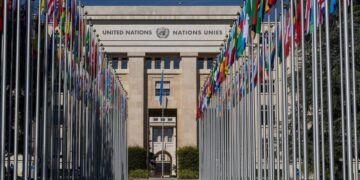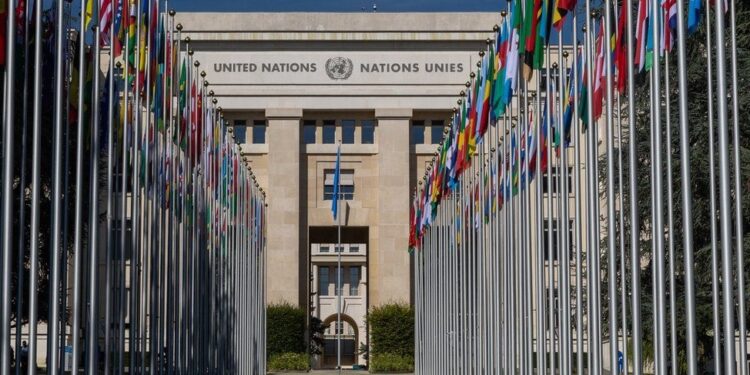By John Ikani
Russia is vying for a return to the United Nations Human Rights Council (UNHRC), marking a crucial moment for its global reputation.
The nation was expelled from this prominent human rights body last April due to its military incursion into Ukraine. Russian diplomats are now earnestly seeking re-election to the council, aiming for another three-year term.
A document shared with UN members by Russia, and obtained by the BBC, outlines their plea for support. The voting is scheduled for the upcoming month.
In the revealed document, Russia commits to finding “appropriate solutions for human rights concerns” and endeavours to prevent the council from becoming a tool of “specific political agendas,” believed to be a reference to Western nations.
Diplomats suggest that Russia seeks to restore some of its international credibility, which has been damaged by allegations of human rights violations both in Ukraine and domestically.
The most recent evidence of these abuses was presented to the Human Rights Council on Monday in a report by its Commission of Inquiry on Ukraine.
The commission’s chair, Erik Mose, highlighted ongoing evidence of war crimes, including torture, sexual assault, and attacks on civilians.
Another report, issued two weeks ago by the UN’s special rapporteur for Russia, Mariana Katzarova, noted a “significant deterioration” in Russia’s human rights situation, with critics of the Ukrainian invasion facing arbitrary arrests, torture, and mistreatment.
The UN Human Rights Council, located in Geneva, consists of 47 members, each serving a three-year term. In the upcoming elections scheduled for October 10, Russia will compete with Albania and Bulgaria for the two seats designated for central and eastern European countries.
The vote will involve all 193 members of the UN General Assembly in New York, where diplomats report Russia’s vigorous campaign efforts, including offers of grain and arms to smaller nations in exchange for their votes.
The Russian position paper, circulated within the UN, underscores its intent to “advance principles of cooperation and strengthen constructive, mutually respectful dialogues within the council to address human rights matters effectively.”
Its central argument is that Russia would employ its membership to prevent the council from being used as a tool by any specific group of countries to punish governments that pursue independent and external policies.
In April 2022, Russia was suspended from the Human Rights Council, with 93 members of the UN General Assembly voting in favor of the suspension, 24 against, and 58 abstaining.
In its position paper, Russia attributes its loss of membership to “the United States and its allies.”
A report by three advocacy groups earlier this month—UN Watch, the Human Rights Foundation, and the Raoul Wallenberg Center for Human Rights—concluded that Russia is “unfit” for HRC membership.
The report emphasized that re-electing Russia to the council while its conflict with Ukraine is ongoing would undermine human rights efforts and send a message that the UN is not committed to holding Russia accountable for its actions.
The United Kingdom voiced strong opposition to Russia’s bid to rejoin the Human Rights Council. A Foreign Office spokesperson cited widespread evidence of Russia’s human rights violations in Ukraine and against its own citizens, emphasizing that such actions undermine the council’s mission.
The UK’s shadow foreign secretary, David Lammy, denounced the idea of Russia’s return to the Human Rights Council, considering it a setback for human rights and the UN’s credibility.
Lammy urged the government to collaborate closely with nations that have previously abstained from voting to uphold the UN’s fundamental values.

































